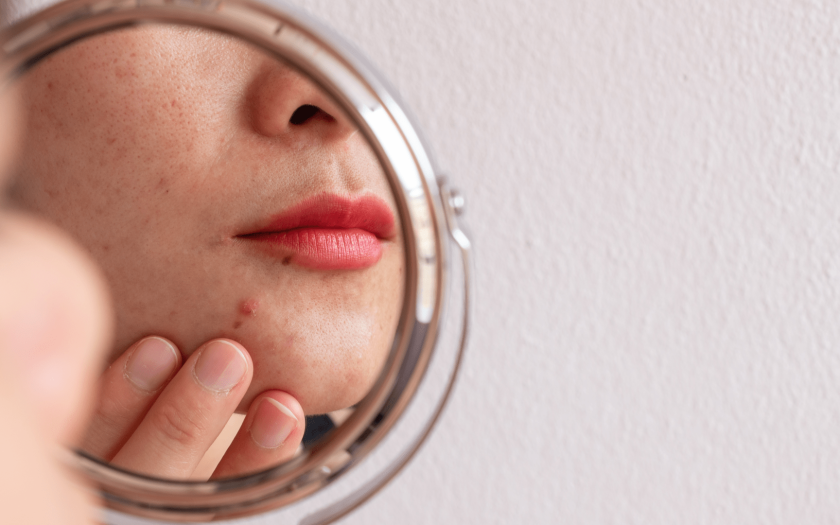Acne can appear on the face and the body all year round. However, during the summer, we often see a particular exacerbation of acne, triggered by a range of factors including sunlight, increased air temperatures and individual characteristics of your body. Let’s delve deeper into why acne flares up more in summer and whether it’s possible to prevent or completely cure sun-induced acne.
Sun and acne are often linked. It’s not surprising that acne can appear on the face due to the heat when temperature rises. Rashes also can extend to the entire body, accompanied by discomfort such as itching, burning or pain. Here are some of the most common causes of summer acne:
Individual sensitivity to sunlight.
Acne on the face during summer can often be due to a so-called sun allergy. This condition is relatively rare, affecting about 2% of the population and is more allergic rash than actual acne. To address such small pimples, antihistamines should be included along with cosmetics.
Disruption of the sebaceous glands.
Ideally, sebaceous glands should evenly secrete the necessary amount of a subcutaneous fat to protect the epidermis from free radicals and create a protective film against harmful microorganisms. However, increased temperatures often lead to excessive sweating, which can result in acne on the arms, legs and face. To eliminate such rashes, it is necessary to thoroughly cleanse the skin, as it becomes contaminated with dust and cosmetic products throughout the hot day.
Influence of ultraviolet.
Sunlight makes the skin more sensitive and prone to rushes. Keep in mind that even umbrellas or shady trees provide only moderate protection from ultraviolet light. Protect your skin with right clothing, wear hats and use genuine sunglasses.
To address acne caused by heat, a comprehensive approach is necessary. It’s recommended to use a range of cosmetic products tailored for sensitive and problematic skin types:
Cleansing products.
These can include such products as hydrophilic oil or a light cleansing mousse. It’s important to remove all contamination from pores in time to prevent heat-induced acne.
Toning.
Acne from heat often occurs on face due to disruptions in skin moisture balance. Toners and tonics help restore lost moisture.
Moisturizing and skin nourishment.
It is believed that hydration is crucial in the summer; but sensitive skin also needs replenishment of vitamins and minerals. Avoid oily, greasy textures when choosing products.
Protection from ultraviolet’s negative effect.
To prevent your skin from becoming more sensitive and prone to rushes, add SPF products into your daily skincare routine.
To treat acne effectively, a comprehensive approach is necessary. Firstly, it’s important to determine the cause of the rushes and undergo the full treatment. Choose products such as A-Ret Gel, Acnederm, or others that help to reduce the appearance of acne and prevent scarring. When selecting creams, gels and other treatments, be sure to consult with a doctor, who can help you choose what you need.

